Any period of history evidencing a dramatic change in world political thought and the balance of power is referred as New World Order.
New World Order term was mostly used after the end of cold war. To describe the post cold era situation and the spirit of the cooperation between two super powers both Mikhail Gorbachev and George Herbert Walker Bush used New World Order term. Initial definitions and preferences of the New World Order brought up by Gorbachev included a wide range of issues and were mostly idealistic, but his capabilities to insist on them were very limited due to internal crises in former Soviet Union. Contrary to Gorbachev’s viewpoint, Bush’s viewpoint didn’t include a wide range of issues and was more realistic.
Robert Cohen, a leading theoretician of neoliberal institutionalism believes that the US hegemonic power has begun to decline after 1970s. While the US leadership power has decreased, he believe all international regimes created after Second World War would continue to remain.
How the world order from the viewpoint of the polarization would be like, is among the most important issues in forming the states’ foreign policy.
The possible next world order has been discussed with Prof. Larry Backer, Professor of Law and International Affairs in Penn State University through an interview by Payman Yazdani.
Following is the full text of this interview:
Some believe after possible decline of the US hegemonic power, there would be no other hegemonic power in the world because the other states would not accept hegemonic powers any more. What do you think of this?
When it comes to the exercise of hegemonic power, states have little choice in the matter. Powerful states are hegemonic precisely because they have power and the will to exercise it for whatever objectives suit them. For the exercise of hegemony, both are necessary, and both must be exercised and projected outward. This is ancient knowledge: Thucydides understood the essence of hegemony as power plus the exercise of will when he described the hegemony of Athens during the Peloponnesian Wars. The Athenians, seeking the submission of the Melians, dismissed their arguments about equity and right: "For ourselves, we shall not trouble you with specious pretenses . . . since you know as well as we do that right, as the world goes, is only in question between equals in power, while the strong do what they can and the weak suffer what they must." Thucydides, The Peloponnesian War 331 (Rex Warner trans., Cassell & Co. Ltd., 2nd ed. 1962) (1954). Weak states are forever arguing equity and right against power, but equity and right is reserved to equals in power. That has been the shape, for example of the Cuban approaches to contesting the perfectly legal occupation by the United States of the land that constitutes the Guantanamo Naval base. It might equally describe relations between Russia and Georgia and the Ukraine. That long background is necessary to understand my answer to the question, which I divide into six parts:
First, there is a difference between the perception of loss of hegemony and the actuality of such a loss. What may appear to be bumbling abroad and instability at home may actually mask changes that strengthen hegemony to the extent they produce greater power and stronger national will. And what may appear to be fracturing of power may be the expression of a willingness to mask power by using others to serve hegemonic interests. The difficulty is that it is impossible to know for sure until well after a hegemon ceases to exercise such power. And former hegemonic states sometimes to continue to use the language of hegemony even as they lose the power to act on their words.
Second, hegemony requires constant attention—most of the great hegemons of earlier eras lost their position and declined precisely when they became lazy and lose the unifying sense of themselves. The great Arab philosopher Abd-ar Rachman Ibn Khaldun spoke of the asabiya or group feeling and the patterns of vigor and decay that foreshadow great empire and decline (The Muqaddimah: An Introduction to History (Franz Rosenthal, trans., N.J. Dawood, ed., 1967) (1377) (Muqaddimah (Introduction) to Kitâb al-‘Ibar (Book of the History of the World) at 97-119).
Third, assuming a perceived or actual loss of hegemony by the United States, only states with the will and the power to replace the United States (or to join it as co-hegemons within smaller fields of influence, which in more ancient times would have delimited Empire) will have any say in the constitution of hegemony. The rest of the community of nations can only “suffer as they must” (and to the extent of their relative power and will). But as long as local interests are protected and internal stability maintained, that complaining will also produce broad obedience to the requirements of the hegemon.
Fourth, as a result, it seems to me that hegemony will continue to be broadly exercised in the world even if the hegemony of the United States declines. But at the same time, because hegemony and its exercise has become more subtle, it will be more difficult to discern the exercise of hegemony. Indeed, in the future the greatest hegemon may be the one whose power is masked and exercised through others—states and non-state actors.
Fifth, but it is also clear that the character of hegemony changes as the number of hegemons changes. One sees this already. Subordinate states will tend to have a broader range of independence where hegemons compete, especially at the borders of their influence. States can seek to play hegemons off against each other, but also suffer consequences when hegemonic core interests are threatened. More on this aspect of hegemony in answer to the next question.
And lastly, modern hegemony must be understood as power and will manifested in a way that is to some extent completely different from the exercise of empire before 1945. One speaks to hegemony now in the control of production chains, in the domination of financial markets, and in the control and construction of systems through which states and their people interact. One understands hegemony as the domination of the global institutional and societal spheres. And one feels the disciplinary power of modern hegemony in the ability and willingness of the hegemony to project targeted military might abroad. In these respects, it may still be too early to conclude that the US has lost substantial hegemony, though many now believe that the US must learn to share or divide hegemony with at least two other states—the People’s Republic of China and Russia.
If we face a multi-polar world in the future, what will be its effect on world order? Can we witness a more stable world under the shadow of a multipolar world?
Assuming that we face a multi-polar world in the future, there will be potentially substantial consequences on the world order. But these consequences may not result in a new stable global ordering. Let us for a moment return to Thucydides: within the “global order” of the Greek “world” he described the inevitable cycle that marked a global order with two large hegemons—Sparta and Athens—stability, competition, confrontation, war, and the destruction of the ordering on which their respective hegemonies were dependent. Indeed, their stability was not restored until an outside hegemon projected in and substantially obliterated the “Greek World Order” embedding it into a Hellenistic World order that was far different. One can see that also in the great struggles between the Greek Byzantine and Sassanian Empires, whose contests eventually exhausted both and paved the way for the establishment of a dar al Islam. One could also see in the contests between English and German Empires the obliteration of the European world order before 1945.
The brilliance of the post 1945 world order system was its ability to order the relations between hegemonic and subordinate states in a way that appeared to give them enough voice that they could concede hegemony to a large extent. That required the predictability and certainty of legalization (rule of law in the global sense institutionalized the exercise of hegemonic power in ways that offered a measure of freedom and protection to all participants). It also transformed the markers of hegemony in a profoundly revolutionary way. Where before 1945 hegemony was necessarily bound to territory, after 1945 hegemony was liberated from the burden of territory for the exercise of its power. A hegemon, after 1945, did not have to control territory to control population; it did not need troops to ensure its domination of trade or the trajectories of wealth transfer. It just required a substantially preclusive voice in the institutions through which power could be exercised. The free movement of goods, capital and investment—and the control of the rules for its movement across borders—did more for the consolidation of power than any prior acquisition of territory. In the past only religions (not states) could have claimed this deep control within which territorial states could be subsumed (though that power was also contested).
It is possible that the emerging hegemons might continue to operate under the current systems of complex interlocking networks of law, norms, enterprises, organizations and institutions. In that case, the rise of multi-polarity would merely shift (decisively) the center of influence from one to a number of states. And contests would revolve around the extent of that influence within these global governance systems and among client states. The European Union suggests how that might work. Thus, just as it is possible to see in the movement toward multi-polarity a rise of instability and threats to global order, so one can see in that movement the possibility of greater stability as more states institutionalize their sharing of influence (and power). The structures for that movement from single to multiple hegemons is already in place. It would require nothing more a reordering of driving forces within those institutions. And, indeed, for example, China has indicated a willingness to move toward power through these established institutional vectors. And it has offered alternative variations on those institutions—from its program of internationalizing its currency, to its more state oriented trade system, the One Belt One Road Project. But at the same time, its contested territorial claims appear to suggest the possibility of a more destabilized model. The same applies to Russia—on the one hand deeply embedded in global institutions, and on the other producing an older style instability through its territorial agendas.
Some believe that a multi-polar world will result in more obscure alignment of states. What do you think of this?
In some sense, this is true. The obscurity is not a product of an inability to discern alignment as much as it derives from the reality that alignments can become more fluid and short lived. The fluidity of Pakistan provides a hint of what may become more common. There is a state that is embedded within regional hegemonic contests—between Iran and India, and then deeply embedded within the higher stake contests for hegemonic territory between the United States and China (and sometimes Russia). At the same time, the state is itself a fragile amalgamation of ethnicities united perhaps to some extent only by their distaste for alternative political arrangements in a world bounded by Afghanistan, Iran and India.
Yet obscurity also suggests opportunity for regional powers—India, Iran, Brazil, and Turkey, for example. There is a precedent during the last period relatively stable period of contested or shred hegemony (1945-1989) during which so-called non-aligned states were able to play a politics of obscurity to their advantage. The problem, of course, is that it is not possible to re-create this in the modern era. The cause is globalization, and the obstruction is the rise of non-state based power that makes analysis grounded only in the state now less useful.
This last point requires emphasis. Important, and often overlooked, is the reality that multi-polarity will also make possible (and obscure) the alignment of the great non-state actor powers. These include not just private enterprises, but also religions and civil society organs. All of these actors now have the power to mobilize popular sentiment in ways that can challenge state control over their populations. In a world in which territory is important but not essential to the constitution of power (and the will to assert it) these non-state actors will also begin to play a more decisive role—one recognized by states across that globe that have been seeking to manage or control their actions within their territories. In any case, one should never underestimate the power of these non-state collectives to play important roles in the balancing of interests and actions among hegemons.
If we believe in multi-polar world for future, which power components will affect world polarization? Basically which counties or organizations will form those poles?
My answer to the last question suggests the answer to this one: globalization will change the power components of any future re-polarization of global politics. It is impossible to turn back the clock and re-institute the world before globalization. At least it is impossible without causing major shocks to the living standards of substantial portions of individuals. That alone should make political leaders (who wish to preserve their power) cautious about inflaming their populations along reactionary lines. However, globalization is not a unified concept and it is quite malleable within the logic of its own organization. The realities of open borders to goods, capital and investment (however they may be used as weapons of conflict among states from time to time), suggests that the emerging multi-polar global order will operate under conditions of substantial fracture, where no state nor large enterprise or religious organization will be entirely dominated by any other apex global stakeholder. States will remain central actors but state power hierarchies will operate in a context of global production chains in which none will have full control of the wealth production overseen by apex enterprises whose center of operations can be diffused globally. Global social organizations will remain potent especially as agents for the construction of societal, cultural and political narratives that can uphold or undermine the legitimacy of other actors. And it is likely that the model of regulation—either by states or enterprises—will shift from law and regulation, to management grounded in data, assessment reward and punishment. For that, China’s social credit project may well be a harbinger of things to come in the public and private sector.
Larry Catá Backer is a Cuban-American legal scholar and professor of law and international affairs. He holds a professorship at the Penn State University, and is the W. Richard and Mary Eshelman Faculty Scholar Professor of Law and International Affairs, Penn State Law and School of International Affairs, Pennsylvania State University (2001–), Ashgate Publishing Globalization Law & Policy Series editor (2010–), and the executive director of the Washington-based NGO Coalition for Peace and Ethics (2006–). A prominent comparative corporate and international law scholar and a leading researcher in constitutional law, Professor Backer is a member of the American Law Institute and the European Corporate Governance Institute. He has served as a grant peer reviewer for the The Hague Institute for the Internationalisation of Law in the Netherlands, Social Sciences and Humanities Research Council of Canada, and others.
Interview by Payman Yazdani


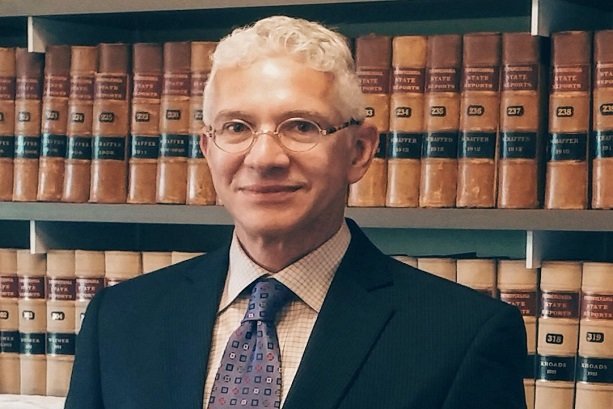
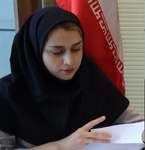
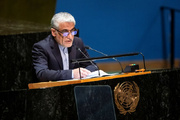
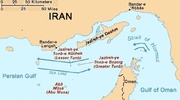
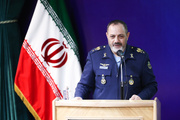

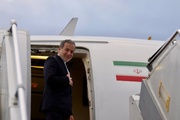
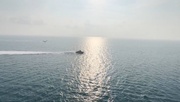
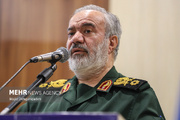
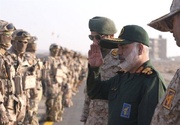
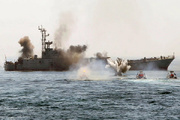

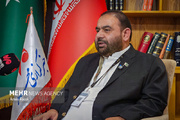

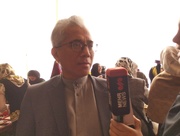
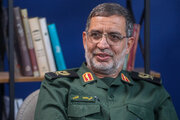

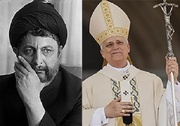

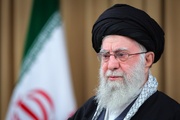


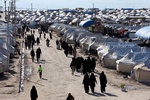
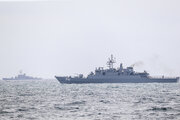

Your Comment